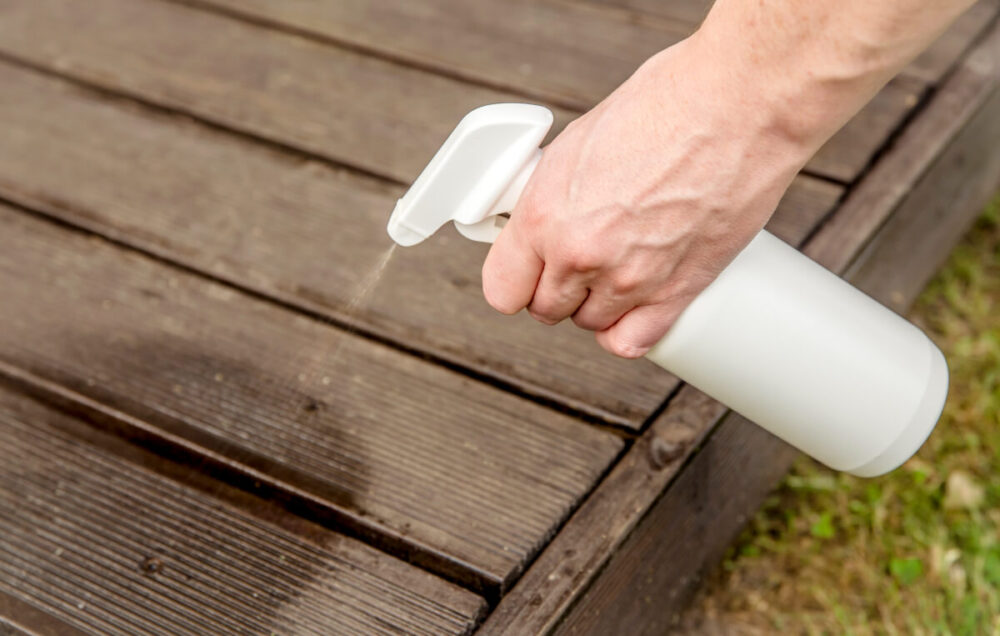
Carpenter ant infestations are one of the pest problems most homeowners dread because of the structural damage they may inflict on their houses. They create ant nests in foundation wall voids, crawl space areas, and others with water-damaged wood. The knee-jerk reaction of some homeowners upon seeing ant trails is spraying them with insect repellent. While the ants seem to be in chaos for a while, they find that these destructive ants don't really go away.
So why shouldn't you spray at carpenter ants? Spraying insect-repellent products on a carpenter ant nest or trail worsens ant infestations because it will trigger a panic response in the active colony. This will trigger a behavior called budding, where ants, along with their ant queen, move to a different location and create new nests to replace those they've lost. Spraying on ant trails may also disperse the ants, who then build satellite nests and new parent nests and multiply.
One of the biggest mistakes most homeowners make is spraying on ants with insect repellent sprays in their search of food. Some of them may argue that it works just fine: it kills many black carpenter ants upon contact, and the rest leaves the scent trails and never returns.
This may seem true at first, but spraying with insect repellent actually makes the infestation of carpenter ants worse. Instances like these are also one of the reasons why we must first learn about the behavior of common ant species.
Spraying on carpenter ants will worsen infestation because it causes budding in ants. Ants who have come into contact with your insect repellent spray and have managed to stay alive return to a satellite colony or their parent colony in tree stumps, tree branches, or any other moisture-damaged wood.
Ants prompt a distressed response to all the ants they're under attack. In a panic, the entire colony evacuates to different locations. A colony splits up, spreads out to create multiple ones, and has the egg-laying queen reproduce more ants to replace the worker ants they've lost.
What homeowners may think of as effective at first might actually result in having more ant colonies with newly-reproduced worker ants. It makes the control of carpenter ants more complicated because of all the new nests and multiple ants.
Aside from spraying on ants, homeowners do other mistakes in getting rid of ants in their houses without realizing it. Some of these mistakes are killing individual ants, failing to replace bait stations, and combining different ant bait products in a single station. Some homeowners fail to identify the accurate ant species before coming up with a strategy in eliminating them.
Some homeowners kill ants upon seeing them with the belief that it will help minimize the ant population and infestation. What actually happens is the opposite--more ants will come up and retrieve the bodies of the dead ants and dispose of them. Instead of simply killing ants randomly, get to the bottom of why they're there in the first place. Inspect your home for tiny openings where the ants may enter and seal it well.
Using the same bait stations might be convenient for some because it's already been successful in eliminating ants before. However, not replacing your bait stations will make the pesticide dry out, making ants less attracted to it.
It's recommended to use different types of ant bait and place many bait stations. Ants may lose interest in a single brand because they tend to change their food preferences regularly. Keeping the ants in your home attracted to the bait you are using allows the poison to build up in a mature colony and their satellite nests. It may even reach the queen, which will result in getting the entire colony wiped out.
Identifying the ant species is also one of the vital steps homeowners usually skip when controlling ant infestations. Knowing the right type of ant allows you to anticipate their behavior and implement the most effective method for getting rid of them.
Your ant control will be effective if you use different types of ant bait products to keep these uninvited critters attracted to it. However, you mustn't combine wet and dry bait in a single station. The moisture from the wet bait will cause molds on the dry bait, reducing the effectiveness of both products.

Carpenter ant damage amounts to millions of dollars yearly in the United States. Some homeowners may have made several mistakes in eliminating ants in their home, but it isn't entirely a hopeless case if you implement the proper ways of ant control immediately. Start by identifying the ant species in your home, finding their nests, using the right types of carpenter ant baits, and erasing foraging trails.
Identify what type of ants you have in your home to come up with an effective method of eradicating them. This allows you to know more about their nesting habits, foraging, and diet. Some experts recommend finding the ant nest to eliminate ants.
For carpenter ant colonies, inspect decayed wood, tree limbs, and any other damp wood in your home and outdoors. Check out for wood shavings that they may have left when creating galleries. Those struggling with identifying ant species may send a picture of the ant and look it up online.
Once you have identified the type of ant you're up against and where their nests are, choose the best pest control products and use them right. Install different types of ant baits for as many as you can. It's preferred to place some close to the anthill or in places where they nest.
The types of ant baits you can consider are solid, liquid, gel, and granules with either protein-y or sugary substances. There are also types of bait for indoors and outdoors, which is safe to sprinkle on plants and shrubs. Choose the slow-acting ones, so ants will have enough time to distribute the bait to their colony.
Instead of spraying insect repellent on ants, using non-repellent sprays are more effective. Non-repellent insecticides won't trigger budding in ants because they wouldn't be able to sense the pesticide.
Apply these as perimeter treatments in surfaces where ants crawl as they hunt for a food source. The ants who had come into contact with the pesticide will spread it to their nest, killing the entire colony.
Ants only move around by sensing the scent other ants have left for them. To keep them from entering your home again, erase the pheromone trail. You may spray the surfaces with a non-repellent spray or wipe them down with an enzyme cleaner.
To make an enzyme cleaner, you will only mix equal parts of vinegar and water. Mix this and spray the solution on areas where ants have left foraging trails before wiping it down. You may also use essential oils or dish soap in place of the vinegar.
Keep your home clean to prevent ants from returning and infesting your home again. Be sure to clear off any food debris left on your table, kitchen counter, living room, and in any other places where there might be leftover crumbs.
Invest in airtight containers for keeping these pests from invading your pantry and ransacking your food supplies, and also don't leave pet food behind. Take out your garbage regularly and don't let your dirty dishes sit for far too long.
Carpenter ants are attracted to wet wood. Remove from your lawn dead wood, tree stumps, and other things that lure in ants. Have all the leaky pipes in your home checked to avoid wooden fixtures in your house from getting too moist.
For extra precautionary measures, keep on applying non-repellent spray or deterrents on the perimeter of your house to keep ants away.

Spraying carpenter ants with insect repellent sprays exacerbates the infestation because it triggers budding where ant colonies split up and create multiple colonies. Eliminating carpenter ants can be challenging for homeowners, especially with the common misconceptions that worsen the problem.
Identify the type of ants in your home before implementing steps for eradicating them. Seek the help of a pest control professional, such as Yale Pest Control for integrated pest management. With almost 40 years of experience in dealing with pests, we’re equipped with the best knowledge and treatment for solving infestations not only by ants but also by a wide range of other pests. Have us inspect your home by reaching us through our website or hotline today.